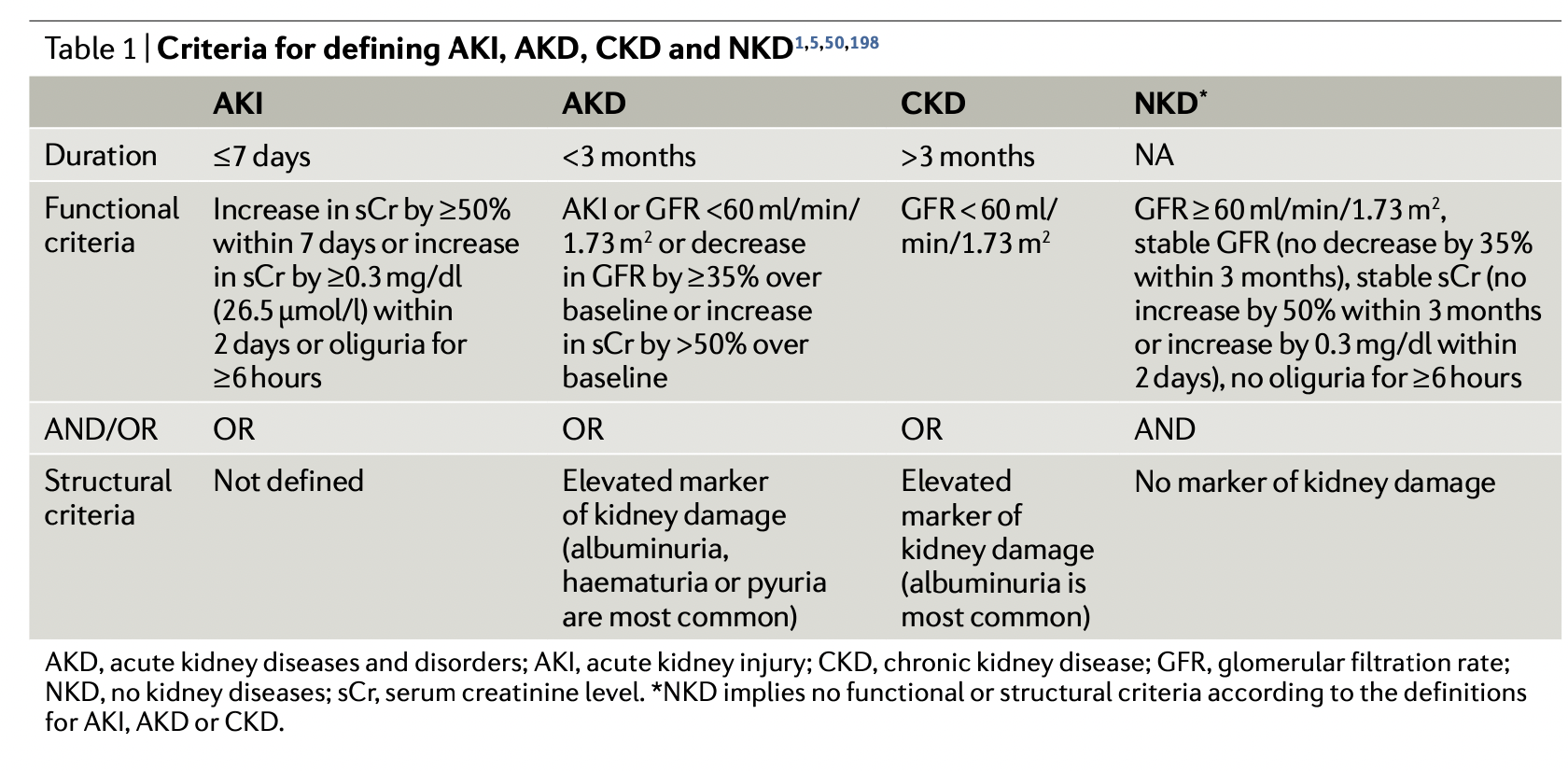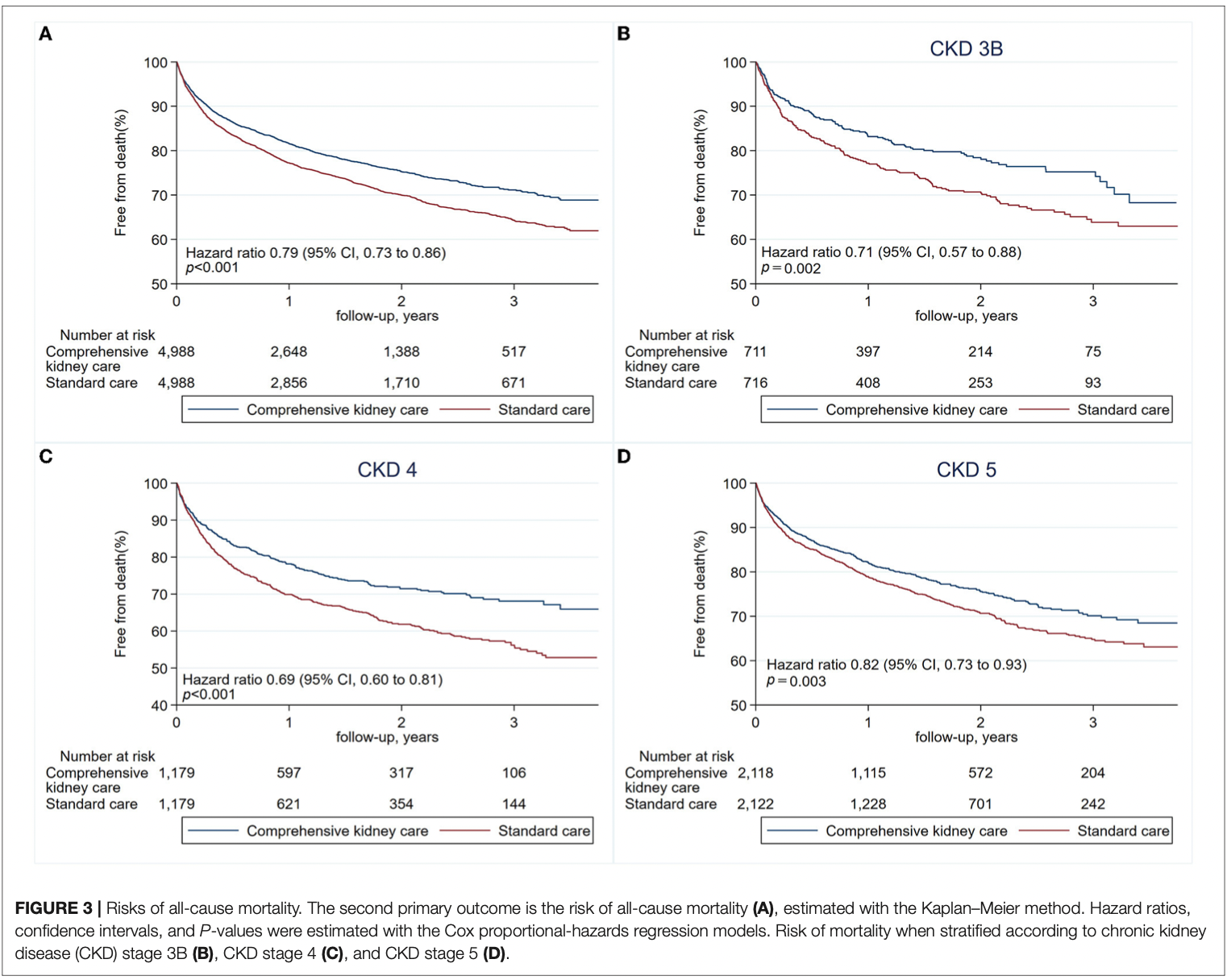How do we define AKI, AKD, CKD and NKD[1]

![Staging of AKI[2]](/UploadFiles/WebFiles/WebPagesFiles/Images/61cdfe9e-dfb9-4e93-a17e-7314cf7550fc.png) What are the exposures and susceptibilities for non-specific acute kidney injury?[2]
What are the exposures and susceptibilities for non-specific acute kidney injury?[2]
![What are the exposures and susceptibilities for non-specific acute kidney injury?[2]](/UploadFiles/WebFiles/WebPagesFiles/Images/b87b0203-1b58-4e52-9ffa-a91e9cf7ce2b.png) What are the next steps in management of this patient?
What are the next steps in management of this patient?
Emergent Hemodialysis was performed upon admission for metformin-associated lactic acidosis during admission. After AKI improved, enrollment into the Taiwan pre-ESRD follow up program was suggested.
Patient Care (Case Correlation to ACGME Core Competency Requirements)
1.Understand the KDIGO criteria for AKI, and definition of AKI, AKD, CKD and NKD.
2.Obtain an appropriate history for exposures and susceptibilities for AKI.
3.Determine who should be referred to a nephrologist for evaluation of AKI, AKD, CKD and NKD.
4.Understand the treatment of MALA.
Medical Knowledge (Case Correlation to ACGME Core Competency Requirements)
1.Understand the evaluation of AKI, AKD, CKD and NKD.
2.Understand the benefits of enrollment into the Taiwan pre-ESRD follow up program. [3]


3.Understand the prognosis of different stages of AKI. [1]
![the prognosis of different stages of AKI. [1]](/UploadFiles/WebFiles/WebPagesFiles/Images/8bf58a39-2fcf-4a7d-84ac-c809ba9365ad.png) Practice-Based Learning and Improvement (Case Correlation to ACGME Core Competency Requirements)
Practice-Based Learning and Improvement (Case Correlation to ACGME Core Competency Requirements)
1.Set goals for studying about AKI, AKD, CKD and NKD pathophysiology, clinical manifestations, and treatment options.
2.Demonstrate the ability to review and interpret literature relevant to the care of patients with AKI.
Interpersonal and Communication Skills (Case Correlation to ACGME Core Competency Requirements)
1.Discuss the results of lab testing with a patient.
2.Discuss the diagnosis of AKI, AKD, CKD and NKD with a patient.
3.Discuss the need for appropriate follow up and monitoring with a patient
Professionalism (Case Correlation to ACGME Core Competency Requirements)
1.Recognize the importance of patient confidentiality and privacy.
2.Understand the need to provide supportive care.
3.Encourage patients to ask questions regarding their disease and empower them to be active participants in their care.
4.Provide adequate time and accessibility to address patient concerns.
5.Demonstrate an understanding of informed consent with regard to therapeutic options in the treatment of AKI, AKD, CKD and NKD.
System-Based Practice (Case Correlation to ACGME Core Competency Requirements)
1.Create a team approach to manage patients with AKI, AKD, CKD and NKD, engaging physicians from multiple disciplines.
2.Identify barriers to access and delivery of care for patients with complex, multi-system diseases.
3.Learn about resources available to improve delivery of care and patient support.
4.Identify the ways in which one can be a patient advocate, including obtaining prior authorization for medications, treatments, and diagnostic tests.
5.Demonstrate an awareness of the economic implications of a diagnosis of AKI, AKD, CKD and NKD for the patient, and the potential impact on healthcare systems caring for patients with chronic conditions.
6.Understand the regulations of National Health Insurance Administration regarding care of AKI, AKD, CKD and NKD patients.
7.Understand the regulations of National Health Insurance Administration regarding enrollment of pre-ESRD program.